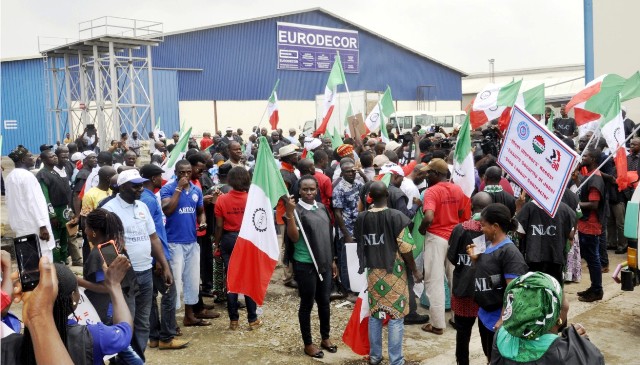Business
Recession: Don Advises FG Against IMF Interest Free Loans

A financial expert, Prof Uche Uwaleke, has advised the Federal Government against consenting to the International Monetary Fund’s (IMF) offer of an interest free loan for the purpose of tackling recession.
Uwaleke, the Head of Banking and Finance, Nassarawa State University, Keffi ,said this in an interview with The Tide source in Abuja, yesterday.
“I will not advise the government to go for an IMF facility as an option to exit the recession no matter how soft the loan is for obvious reasons.
“First, the Fund is not known for granting concessional loans and there are usually strings attached with strict conditionalities.
“Also, unlike loans from the World Bank described as concessional, given their low interest rates and long tenor, loans from IMF have very short tenor and hardly address Balance of Payment problems.
“The country is advised to consider all the terms of the loan which may include subsidy withdrawals and reforms in the forex market, the later a euphemism for devaluing the domestic currency.
“Clearly, such loans are not for capital projects.
“The truth is that there is more to it than interest free loan and I strongly feel that the country can do without this Greek offer from the IMF’’ he said.
According to Uwaleke, what the country needs are project tied loans that can be applied to employment generating activities such as Infrastructure, power, agriculture among others.
The don explained that the country did not need short term loans geared towards facilitating import of items which could be produced locally.
He said that further addition to the stock of external debt should be from long term sources such as the World Bank and the African Development Bank(AfDB).
He said that other bilateral concessional sources that should be considered include the China EXIM Bank and the Japan International Development Agency.
He said,”during her last visit to Nigeria, the Managing Director of the IMF, Christine Lagarde, said the country does not require an IMF loan.
“So, one wonders why the change in stance only some months after. Nigeria is well advised not to fall for the bait by not accepting the offer.
“The country’s experience with the Fund during the SAP era of the Babangida administration is sufficient reason not to touch any loan from the IMF even with a long pole.
Recall that the IMF Managing Director at the ongoing IMF/World Bank 2016 General Meeting, said it had introduced zero interest rates on all its concessional facilities until 2018.
The theme of the meeting is: “We can end poverty together, global problem and global solutions’’.
Lagarde, said that after the duration (2018), IMF would maintain low interest rates around the world.
According to Lagarde, “If we want to address the inequality issues, we need to have a strong international safety net.
“In this context, I am pleased to note that our board has approved zero interest rates on all fund concessional facilities until 2018.
“This is really important for low-income countries to be able to actually absorb the shocks without necessarily going to the international markets or relying on bilateral lending that can be far expensive,’’ she said.
Transport
Automated Points Concession : FAAN Workers Gave 72hrs To Revise Decisions In PH

Transport
FAAN Announces Pick-Up Points for Go-Cashless Cards

Business
Fidelity Bank To Empower Women With Sustainable Entrepreneurship Skills, HAP2.0
-
Politics3 days ago
2027: NIGERIANS FAULT INEC ON DIGITAL MEMBERSHIP REGISTER DIRECTIVE
-

 Environment3 days ago
Environment3 days agoLAWMA Director Says Sweeping Reforms Have Improved Waste Collection
-
Politics3 days ago
LP Crisis: Ex-NWC Member Dumps Dumps Abure Faction
-

 Politics3 days ago
Politics3 days agoUmahi Dismisses Allegations On Social Media, Insists On Projects Delivery
-

 Sports3 days ago
Sports3 days agoAbia Not Sure To Secure continental Ticket
-
Sports3 days ago
La Liga: Yamal Records First Career Hat-trick
-
Politics3 days ago
NATASHA ELECTRIC VEHICLES INITIATIVE IN KOGI CENTRAL
-

 Sports3 days ago
Sports3 days agoPSG Extend Lead In Ligue 1

